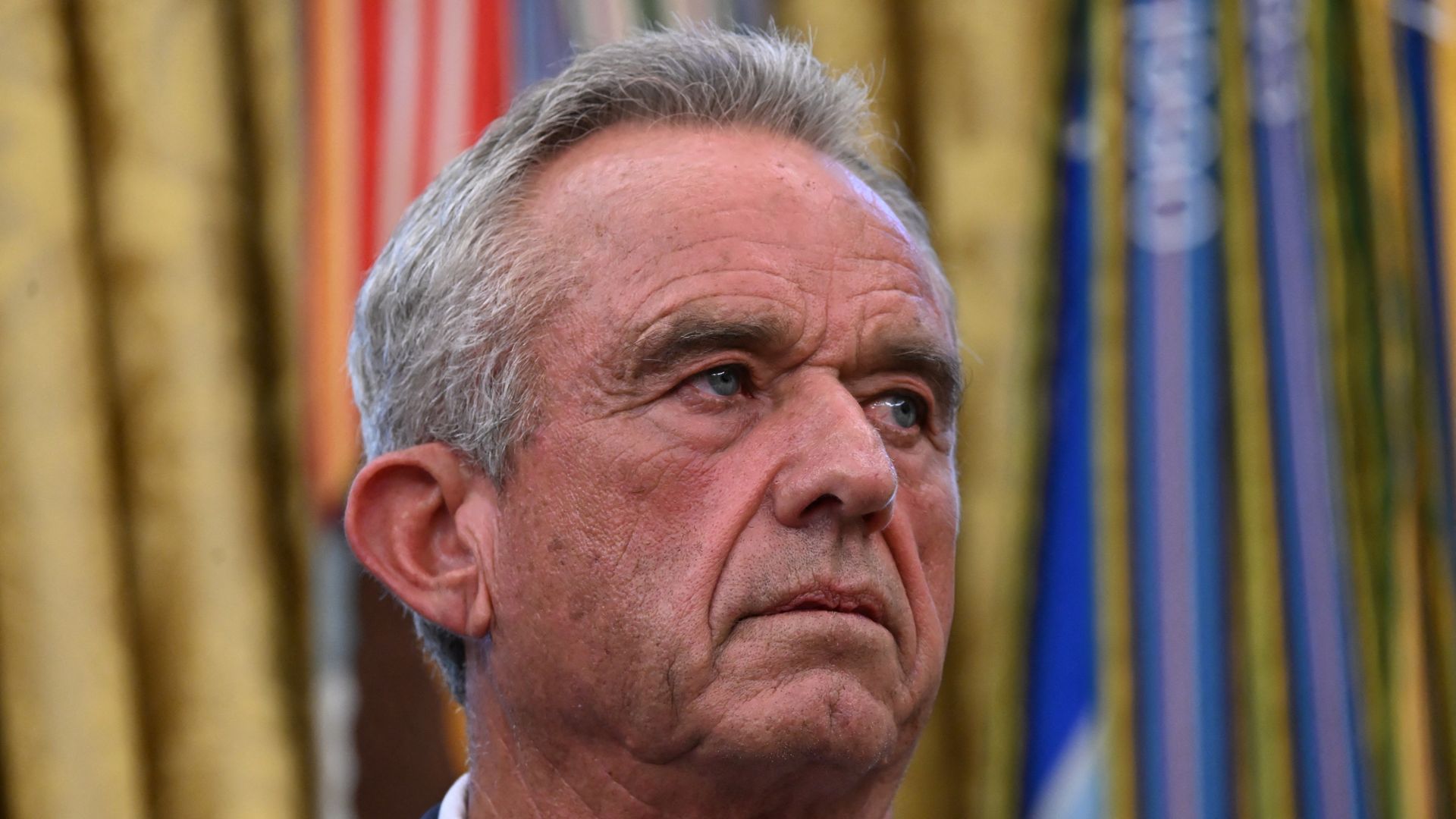|
||
| PRESENTED BY PHARMACEUTICAL REFORM ALLIANCE | ||
| Axios Vitals | ||
| By Maya Goldman and Tina Reed · May 07, 2025 | ||
|
⏰ Halfway through the week! Today's newsletter is 1,060 words or a 4-minute read. Situational awareness: HHS will reinstate a small portion of the federal workers laid off last month, particularly those who performed specialized tasks, an agency official told Axios last night.
|
||
| 1 big thing: Drug imports surge amid tariff threat | ||
| By Tina Reed | ||
 Data: FRED; Chart: Axios Visuals President Trump's threat of pharmaceutical tariffs is driving a surge of exports of drugs and medical products from Europe to the U.S. as manufacturers look to build up stockpiles before duties hit. The big picture: The explosion in shipments helped swell the U.S. trade deficit by 14% in March as drugmakers joined other industries bracing for the trade war, the Commerce Department reported on Tuesday.
"The race is on. Everyone wants to get in before they can't get in anymore," said Marc Busch, an expert in international trade policy from Georgetown University.
By the numbers: The international trade deficit increased to $140.5 billion in March 2025 from $123.2 billion in February, according to the Commerce Department's Bureau of Economic Analysis and the Census Bureau.
Between the lines: Imports from Ireland — a major source of cancer drugs, insulin, Viagra and Botox — surged to nearly $31 billion in March.
Reality check: Tariff impacts likely won't hit all at once, because these stockpiles will provide some reprieve, said Michael Grosberg, a pharma expert at Model N.
Yes, but: Manufacturers can only stockpile so much. |
||
|
|
||
| 2. RFK Jr. picks his top vaccine regulator | ||
| By Tina Reed and Maya Goldman | ||

|
||
|
Photo: Marvin Joseph/Washington Post via Getty Images |
||
|
Vinay Prasad, a hematologist-oncologist known for at times scathing social media critiques of public health policy, will be the FDA's new top vaccine regulator, according to an email viewed by Axios. Why it matters: The University of California San Francisco physician will succeed Peter Marks, who abruptly resigned as director of FDA's Center for Biologics Evaluation and Research in March, citing disagreements with HHS Secretary Robert F. Kennedy Jr. Driving the news: Prasad is an outspoken skeptic about COVID-19 vaccine mandates for kids, though he's called the vaccine itself a "a miraculous, life-saving advance."
Zoom in: Prasad has made a name for himself on social media platforms including X, his Substack called Sensible Medicine, and the podcast "The Plenary Session," where he discusses medicine, policy, ethics and the pharmaceutical industry.
Scott Steele, who served as acting CBER director following Marks' departure, will return to his position as senior adviser for translational science. Prasad's selection was first reported by Endpoints News.
|
||
|
|
||
| 3. Senators: Cuts imperil Indian Health Services | ||
| By Maya Goldman | ||

|
||
|
Photo: Alex Wroblewski/AFP via Getty Images |
||
|
A bipartisan group of senators warned Robert F. Kennedy Jr. on Tuesday that cuts to the federal health care workforce are threatening Native Americans and other beneficiaries of Indian Health Services care. Why it matters: HHS is obligated to provide health care to American Indians and Alaska Natives — serving about 2.8 million Americans from a population that experiences disproportionate disease burdens, Sens. Jeff Merkley (D-Ore.), Brian Schatz (D-Hawaii) and Lisa Murkowski (R-Alaska) wrote. State of play: Indian Health Services staff have been exempted from some cuts and hiring freezes since the start of the Trump administration, but the loss of other employees who assist with the agency's core functions has only made long-standing clinical staffing shortages worse, the senators say.
What they're saying: "The loss of administrative infrastructure for payroll, assignments, and special pays will disrupt healthcare delivery in remote Tribal communities," the letter says. The other side: HHS told Axios that Kennedy is committed to prioritizing tribal health and IHS and noted that the department was not impacted by workforce reductions. The senators requested that Kennedy meet with Senate Appropriations Committee and Senate Committee on Indian Affairs staff on the issue. |
||
|
|
||
|
A MESSAGE FROM PHARMACEUTICAL REFORM ALLIANCE |
||
| Big Pharma puts Americans last | ||
|
|
||
|
Americans know who to blame for rising drug prices: Big Pharma. Most Republicans, Democrats and Independents all believe Big Pharma is stealing from Americans, one prescription at a time. Let’s hold them accountable and put Americans first. |
||
| 4. Alzheimer's on the rise | ||
| By Carly Mallenbaum | ||
 Data: Alzheimer's Association; Map: Erin Davis/Axios Visuals More than 7 million Americans over 65 are now living with Alzheimer's — the highest number ever recorded, per a new Alzheimer's Association report. Why it matters: That means about 1 in 9 people 65 and older (11%) have dementia believed to be caused by Alzheimer's — but addressing cognitive decline early can help stave off the disease. By the numbers: Almost two-thirds of Americans with Alzheimer's are women, according to data cited in the report.
"It doesn't surprise me" that Alzheimer's incidence has increased, because the population is aging and "we're becoming more sophisticated in our options for diagnosing and testing for Alzheimer's disease," Lakelyn Eichenberger, a gerontologist and caregiving advocate at Home Instead, tells Axios. Be smart: Keeping your brain on its toes, so to speak, can help prevent dementia. That means learning new things and staying social. |
||
|
|
||
| 5. Catch up quick | ||

